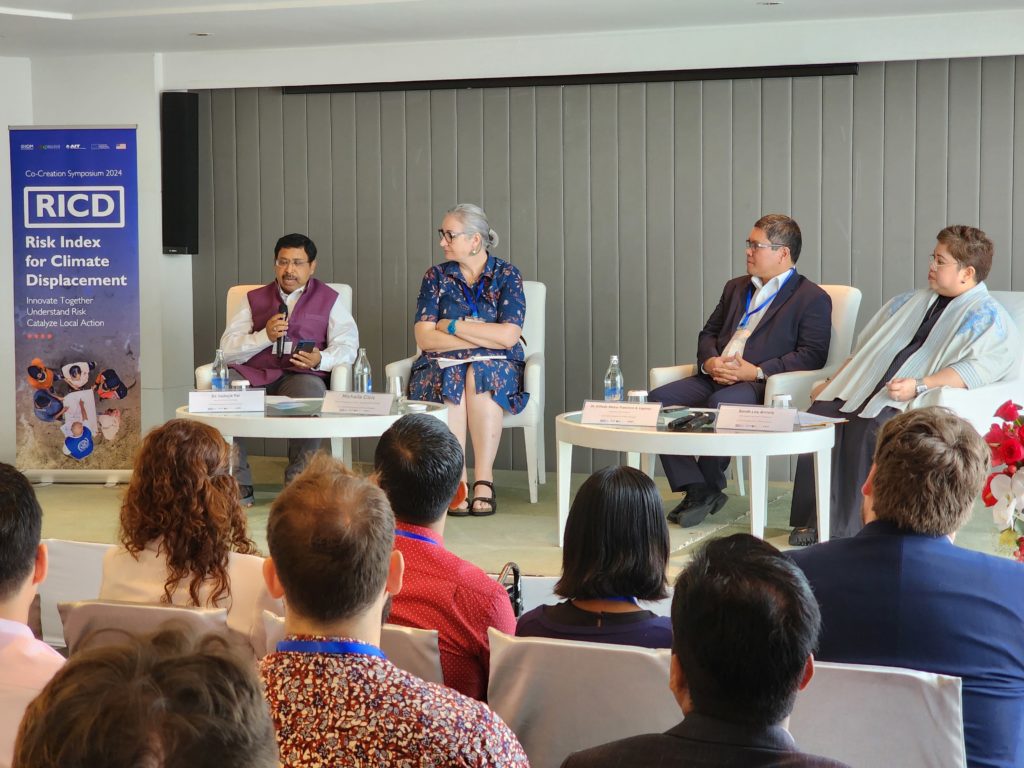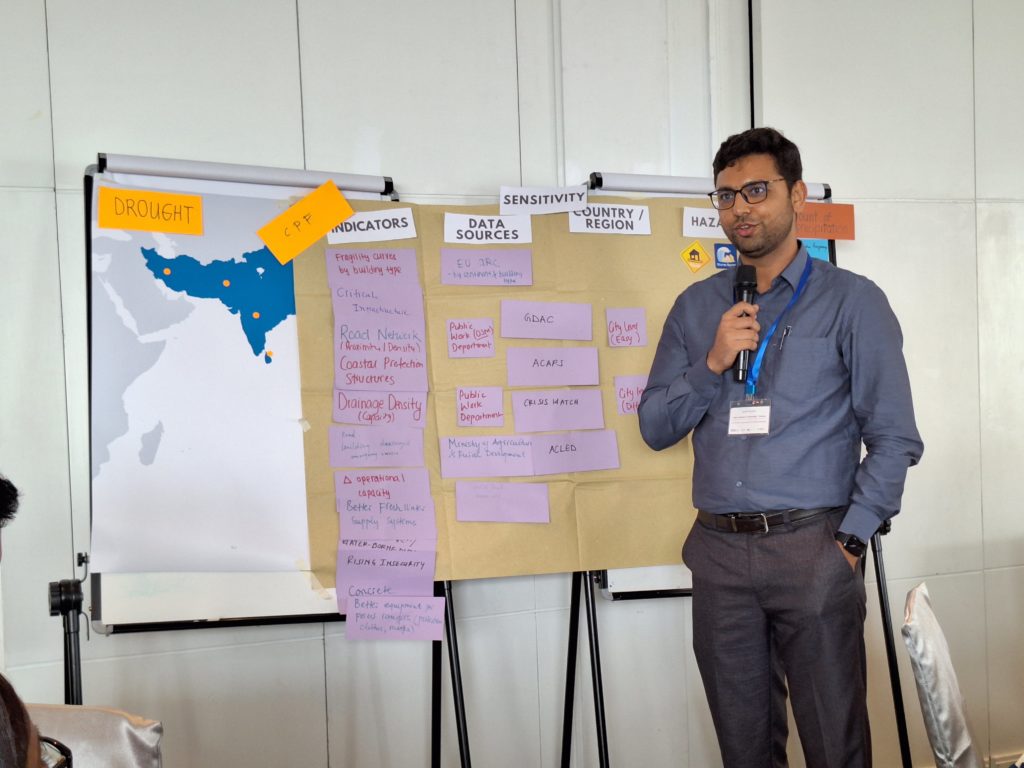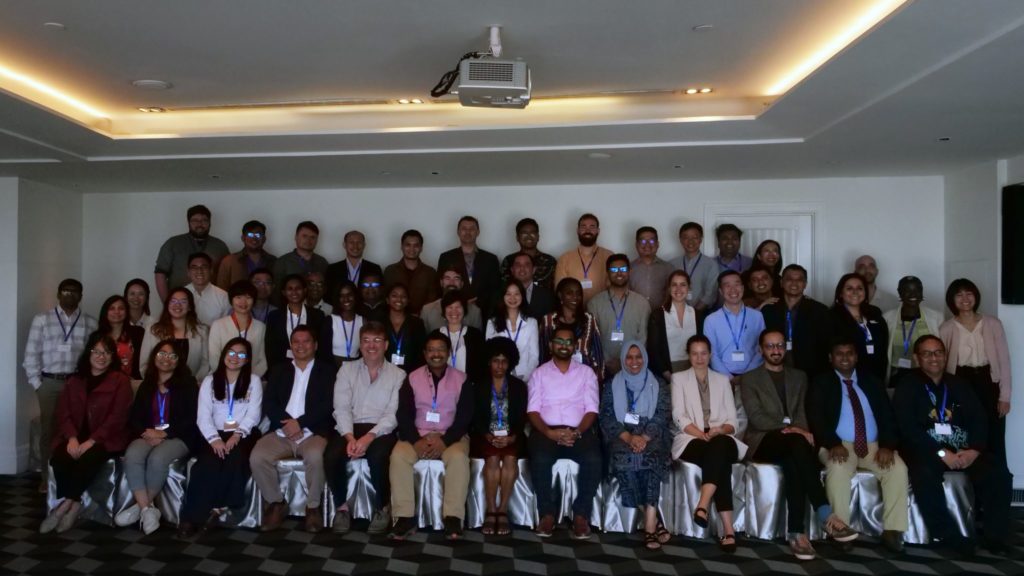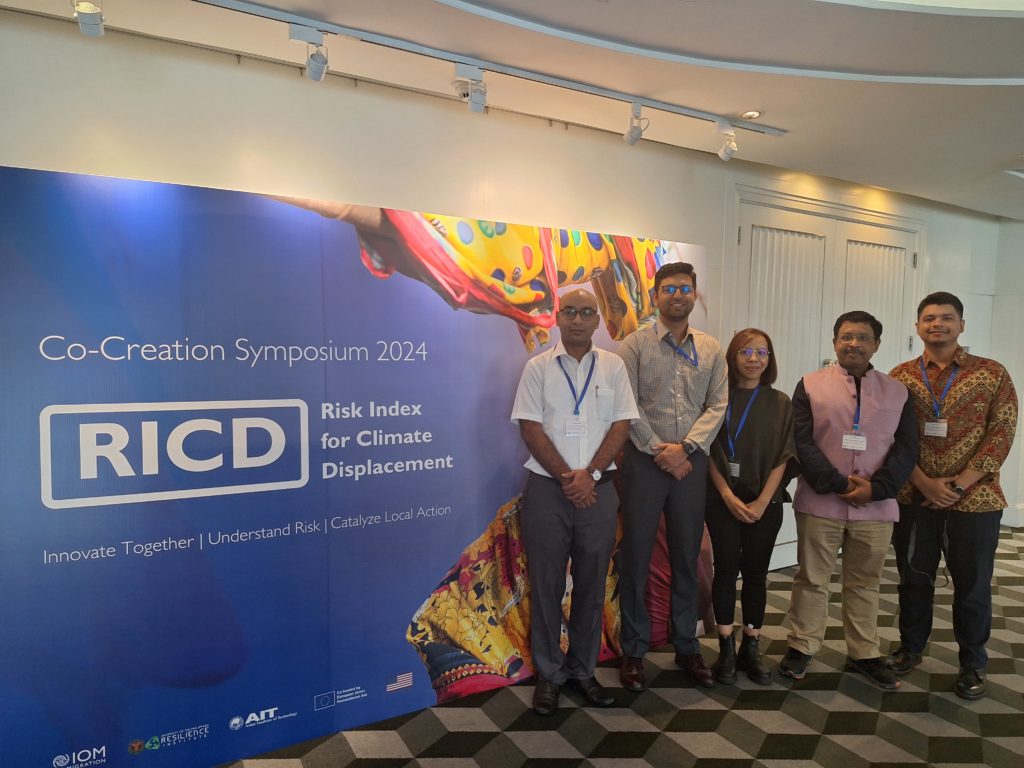DPMM AIT Co-organizes the RICD Symposium & Policy Dialogue: A transdisciplinary approach to address displacement due to climate change.
Asian Institute of Technology (AIT) partnered with International Organization for Migration (IOM) Asia Pacific and the University of the Philippines Resilience Institute (UP RI) to organize a two-day symposium entitled “Risk Index for Climate Displacement (RICD): Co-creation Symposium & Policy Dialogue” from 11 to 12 July 2024 at the Pullman G Hotel in Silom, Bangkok. The Symposium was organized as part of the RICD project in collaboration with IOM and UP RI.

The Co-creation Symposium served as a transdisciplinary platform for a multi-stakeholder dialogue to develop a robust, modular methodology for assessing climate displacement risk in Asia and the Pacific. The event brought together over 50 experts who represented diverse disciplines and expertise from academia, international organizations, and research institutions from Asia and the Pacific and around the world to co-create and co-develop innovative approaches and tools to assess the adverse effects of climate change on displacement.
The Symposium was kicked off by high level officials from Asian Institute of Technology, IOM Asia Pacific, UP RI, and European Commission DG ECHO who provided opening remarks that underpin the importance and relevance of the Symposium to the global agendas on climate change adaptation and human mobility.

On behalf of AIT President Prof. Kazuo Yamamoto, Dr. Indrajit Pal, Assoc Prof. and Chair of Disaster Preparedness, Mitigation and Management (DPMM), AIT remarked on how climate displacement in Asia Pacific requires close attention and collaboration from all stakeholders in the region. Dr Pal believes that the expertise of AIT is aligned for transformational societal change, specifically for climate-induced displacement. Ms. Sarah Lou Arriola, the Regional Director for IOM Asia Pacific, highlighted the extent of climate displacement globally and in Asia Pacific so far and pressing need for further research on the nexus between climate change and human mobility in Asia and the Pacific region. Her remarks were followed and echoed by Dr. Mahar Lagmay, the Executive Director of UP RI who stated that the complexities of climate change and displacement require an innovative, transdisciplinary, and trans sectoral approach. Ms. Michelle Cicic, the Head of Regional Office South/South-East Asia Pacific at European Commission – ECHO, believes that we must collectively invest in preparedness and early action to tackle the humanitarian consequences of climate change.

Following the opening session, keynote speeches were delivered by Ms. Rania Ahmed, Director of Climate Action for IOM; and Sec. Robert E.A. Borje, the Commissioner and Vice Chair of the Philippines Climate Change Commission. Ms. Rania underlined the need to listen to the voices of the communities in the effort to solve global challenges, including climate displacement, and communicate scientific evidence effectively to policy makers, governments, and donors. Sec. Robert also reiterated the importance of scientific communication, noting that ineffective communication can lead to reluctance or aversion from local stakeholders.

The two-day event covered sessions on hazards and vulnerability, climate change impacts and triggers of displacement, thresholds, tipping points, data acquisition, and predictive modelling. The sessions emphasized the importance of standardizing metrics, science-based and data-driven approaches to assessing impacts of climate displacement and increasing climate resilience. Dr. Indrajit Pal led sessions on climate change impacts, triggers, and tipping points for displacement over the two days. The sessions focused on how climate change impacts can influence community livelihood resilience which subsequently triggers forced migration or displacement. Members of DPMM who co-facilitated the sessions were Mr. Subhajit Ghosh, Mr. Ayush Baskota, Ms. Annlouise Castro, and Mr. Jeeten Kumar. Dr. Pal also co-led sessions on hazard & vulnerability and predictive modelling for displacement.
The Symposium promises to be the start of future collaboration and enhanced partnerships among a diverse range of stakeholders in addressing climate displacement.
0 Comments